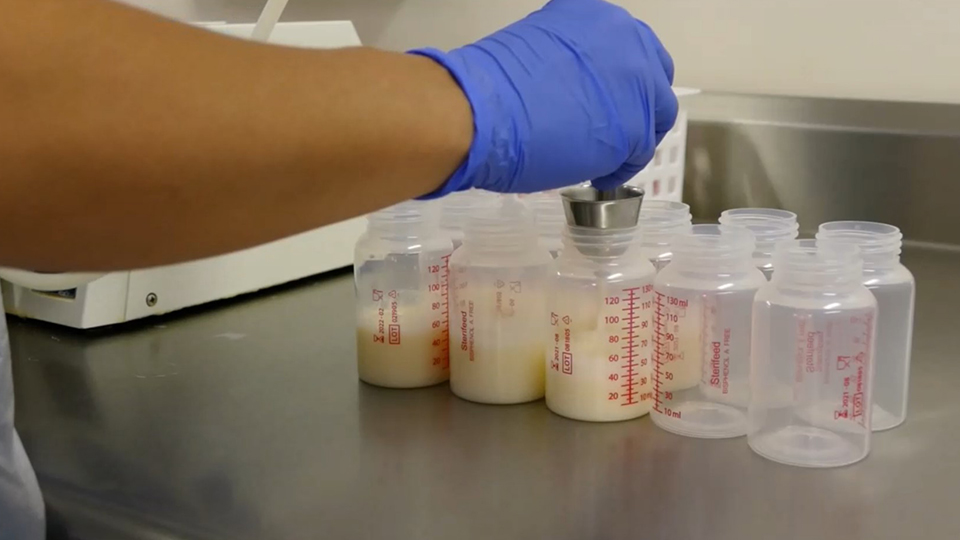Formula Shortage Spurs Demand at Milk Banks
Subscriber Benefit
As a subscriber you can listen to articles at work, in the car, or while you work out. Subscribe Now
The country is continuing to deal with a shortage of baby formula despite a recent announcement from the Biden administration to allow more national imports and Abbott Laboratories’ plan to restart formula production in Michigan. As a result, The Milk Bank in Indianapolis says demand for donated human milk has risen 89% in the last 10 days. “It has been a bit of a crisis and a lot of families are becoming desperate,” said Freedom Kolb, executive director of The Milk Bank.
Kolb tells Inside INdiana Business families have a lot of fear and questions about what can be done.
“We’re hearing a lot of stories where moms are driving to multiple stores only to find either rationing or just empty shelves, a lot of confusion on if I use formula A, is formula B still safe for my infant?” said Kolb.
The Milk Bank cites a review of formula supplies conducted by DataAssembly, which shows more than 11,000 stores indicated nearly 30% of popular formula brands are sold out, with that number rising to well above 50% in some major cities.
The U.S. Food and Drug Administration on Monday said it was its review process to make it easier for foreign manufacturers to begin shipping more formula into the U.S.
Commissioner Robert Catliff told reporters the government will prioritize companies that can provide the largest shipments and quickly show documentation that their formulas are safe and compatible with U.S. nutrition standards.
Meanwhile, Abbott’s plant in Sturgis, Michigan, which has been closed since February due to contamination issues, is slated to resume production after the company overhauls its safety protocols and procedures. The company says it will take eight to 10 weeks before new products can hit shelves.
In the meantime, Kolb says she expects more of the same over the next few weeks. One of the bright spots, she says, is how moms are coming together to help each other out as they seek formula.
“Despite all of that frenzy, we are also hearing a lot of stories of compassion, too, where moms are activating their networks and you have friends taking pictures of what is available in a store, providers stepping up, food pantries stepping up and of course, The Milk Bank,” she said. “We’ve seen a lot of milk donors come through at this critical time as well.”
The majority of pasteurized donor human milk at The Milk Bank is dispensed for babies in the hospital, though 19% of milk dispensed last year went to babies at home, a 116% increase over the previous year.
The Milk Bank says it can provide up to 40 ounces of bridge milk without a prescription and most families can receive milk in 24 hours or less.
Kolb says even after the formula shortage is abated, two critical things must happen.
“We have to talk about milk banking in the same breath that we talk about blood and organ donations. It is the same life-saving feature for our medically-fragile infants across the state and across the country,” she said. “We also have to have critical conversations about public health systems. We have to pull things such as breastfeeding, infant nutrition back into the science realm and kind of outside ‘mommy wars’ and culture wars and really have those conversations and examine what led us here.”
Kolb says those who can’t donate milk can also make a financial contribution to help cover the cost of processing milk that is donated.
You can learn more about The Milk Bank and its efforts to combat the shortage by clicking here.
The Associated Press contributed to this report.
